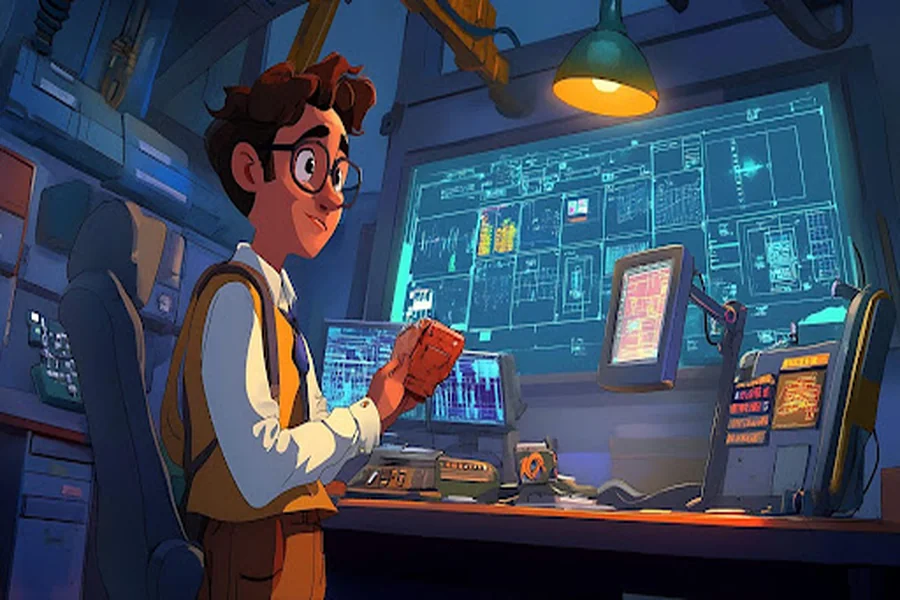Suppose one is in line at a convenience store and sees someone purchasing a few lottery tickets with the brightness of hope in their eyes. “It’s only a dollar,” they think. A ticket would make the difference. The majority of us have been there–or at least entertained the fantasy. However like AzurSlot Casino, it is extremely unlikely. Why then are we humans continuing to pick up these small pieces of paper and betting over and over again on the unlikely results?
This can be answered by the interesting — and at times baffling — topography of human irrationality. Lottery tickets are not only a form of gambling, but also a manifestation of our thought process and the dopamine mechanism, as well as subconscious impressions that influence our decision-making.
The Allure of the Lottery
Lotteries tap into one of the simplest human needs: hope. This is the point at which cognitive biases begin to emerge. Even the thought that someone has won in the past, possibly making me a winner too, triggers the availability heuristic and makes rare events seem all too frequent. All of a sudden, a $2 ticket does not sound like a gamble, but more like a chess move.
Even non-scholars are a little irrational. The gambler’s fallacy, the assumption that historical results affect future results, may induce one to choose the so-called hot numbers or to shun the so-called cold ones, even though each draw is a separate event. And the sunk cost fallacy?
The Irrational Choice Cognitive Machinery.
There is a complex cocktail of mental shortcuts and emotional stimulation behind each purchase of a lottery ticket. The human brain is a bad probabilistic reasoner; we are intuitively overconfident in events with low probability and high reward. Add decision fatigue into the equation, and our reasoning can go automatic. The decision between which numbers to play or what online casino game to explore is less about calculation and more about immediate emotional gratification.
An important driving force here is emotion. The excitement of a potential victory could be stronger than the clear understanding that the chances are ridiculously low.
The Brain in a Neuroscientific Lens.
Neuroscience provides insight into why the lottery is so hard to resist. One of the most crucial centers in the brain’s reward system, the nucleus accumbens, responds strongly to anticipation rather than to outcomes. That is, the process of hope provokes pleasure nearly as much as winning. That is why the tendency to play the lottery or visit a web-based casino repeatedly may be self-fulfilling.
Variable rewards (unpredictable, intermittent reinforcement) are what the BrainBrain loves, and this is what makes lotteries, slot machines, and even a simple game on a computer screen so addictive.
Digital Participation (Paper Tickets).
The patterns of behaviour have today become online. Casinos, such as AzurSlot Casino, are examples of how the digital space amplifies the inherent biases within us. Immediate feedback, volumetric imagery, and endless micro-feedback, digital casinos produce a loop of dopamine-induced pleasure that resembles a lottery on steroids. The use of variable rewards, cartoon-like animations, and near misses encourages users to interact with the tool for much longer than they would with traditional lottery tickets.
Even games such as baccarat online play, where the probabilities are defined and specific rules must be followed, exploit the same psychological responses. Risk, possibility of gain, and quick repetitions of play encourage the illusion of control and suspense–even where the true likelihood is objectively small. Online spaces amplify the effects of every insidious cognitive bias, and biases based on emotional reaction appear more natural.
Expert Perspectives
Neuroscientists and behavioral economists concur that there is nothing random or unique about these patterns. It is hardwired into human brains to seek reward, expect pleasure, and occasionally infer improperly. According to one cognitive psychologist, lottery tickets and Internet games are reflections of our own heuristics and biases, reflecting our cognitive processes, hopes, and choices in the face of uncertainty.
Dopamine loops, decision fatigue, optimism bias, instant gratification, the processes that happen are astonishingly similar between physical and digital gambling experiences. Even scholars engaged in researching the effects of these phenomena are fascinated and, often, puzzled by the manner in which humans repeatedly roll dice with dubious chances of success.

